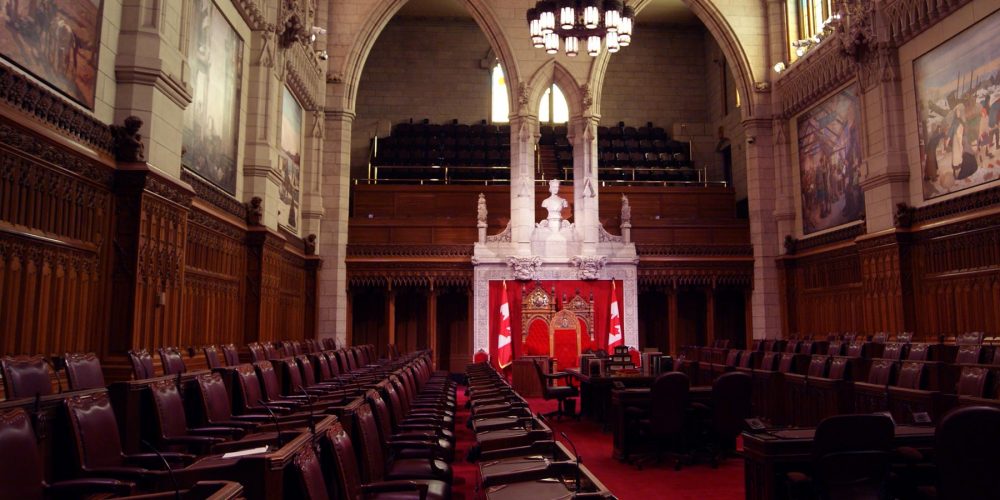How can I consider myself a “real environmentalist” if I’m not keeping up with the issues and solutions being discussed in the world around me? For me, Twitter and Instagram are often the first place where I find out about current and trending topics in the news. Recently, while browsing Twitter, I noticed that the hashtag #Billc69 was trending and saw a lot of comments about this bill, which proposes a new environmental impact assessment system.
How can I consider myself a “real environmentalist” if I’m not keeping up with the issues and solutions being discussed in the world around me? For me, Twitter and Instagram are often the first place where I find out about current and trending topics in the news. Recently, while browsing Twitter, I noticed that the hashtag #Billc69 was trending and saw a lot of comments about this bill, which proposes a new environmental impact assessment system. Being an Environmental Assessment student, these familiar words enticed me to dig in and find out why so many people had so much to say about it.
Bill C-69 was adopted on June 20th by the Canadian federal government. According to the Parliament of Canada, it is “an Act to enact the Impact Assessment Act and the Canadian Energy Regulator Act, an Act to amend the Navigation Protection Act and to make consequential amendments to other acts”. Essentially, this bill will introduce new laws governing environmental assessments, replace the National Energy Board with a new Canadian Energy Regulation and amend the Navigation Protection Act.
The federal government says this bill will rebuild public trust around decision-making by increasing public engagement, creating stronger rules for environmental protection, increasing engagement with Indigenous peoples, and requiring both early planning phases and shorter review timelines. The new impact assessment act is also seen as a way for the government to assess larger projects like pipelines and railways and their effects on human health, the economy, and the environment.
The Honourable Catherine McKenna, Minister of Environment and Climate Change, has naturally been one of the major voices promoting the bill through the media. In a promotional video, she says with Bill C-69 and the new impact assessment system, project decisions will be more closely based on scientific evidence and Indigenous traditional knowledge. The new system would allow for more opportunities for Canadians to participate in the decision-making process through the creation of simple summaries available to the public and by recognizing the rights of Indigenous people and their roles in decision-making.
But the bill has been facing a lot of criticism online, and unsurprisingly, most of the concerns are related to its impacts on the oil and gas sector. Conservative Party Senator for British Columbia, Richard Neufeld, called Bill C-69 “one of the most toxic, polarizing and divisible bills” he has ever encountered in his 10 years as a senator. In an official video, the Premier of Alberta, Jason Kenney, called Bill C-69 “a no-more-pipelines law” and said the bill is “attacking a major export of only one province, Alberta” and “is a prejudicial discriminatory attack” with “no defensible rationale”. Alberta’s Energy Minister, Sonya Savage said the bill “strikes at the heart of national unity”, suggesting it shows a disregard for jobs and the economy. But Alberta is not the only provincial government against it. Newfoundland and Labrador Senator David Wells says, in a guest column for St. John’s Telegram, that Bill C-69 “kneecaps the well managed and responsible petroleum sector supposedly in the name of the environment”.
Despite the loud criticisms, however, the bill also saw positive traction and feedback online. According to the National Post, Bill C-69 has been supported by industries such as the Mining Association of Canada. Many environmental organizations support the bill, while pointing out that it could have gone further in protecting sensitive ecological regions and accounting for greenhouse gas emissions. Several Northern Alberta Indigenous leaders have also supported the legislation. “Our intent with Bill C-69 is to ensure that it is robust enough to allow First Nations across Canada to have their rights considered without having to resort to courts,” said Chief Archie Waquan of Mikisew Cree First Nation tribe of Alberta, to the Canadian Press for Global News. West Coast Environmental Law, a non-profit group of environmental lawyers and strategists, have shown support for Bill C-69 as well. They hosted workshops around Canada on Impact Assessment, participated in expert review and debunked myths about C-69. They described the passing of this bill as “a huge step forward for environmental decision making in Canada.”
So, what does this all mean? From the time it was proposed to after it was passed, Bill C-69 has been viewed as a threat to the economy by the oil and gas sector and conservative commentators because of its tighter environmental regulations. Their pushback is understandable. With more serious action on the climate crisis being demanded in the last few years, people whose livelihoods depend on the oil industry are worried about how they will be affected every time an environmental bill is proposed. But the new impact assessment systems and regulatory bodies are not even up and running yet. We should at least give it an opportunity to work. After all, it only seeks to put more efficient regulations towards protecting the environment, as the Ministry of Environment is expected to do.

Nengi is a fourth year Geography and Environmental Management student at the University of Waterloo. She is a summer intern with A/J













